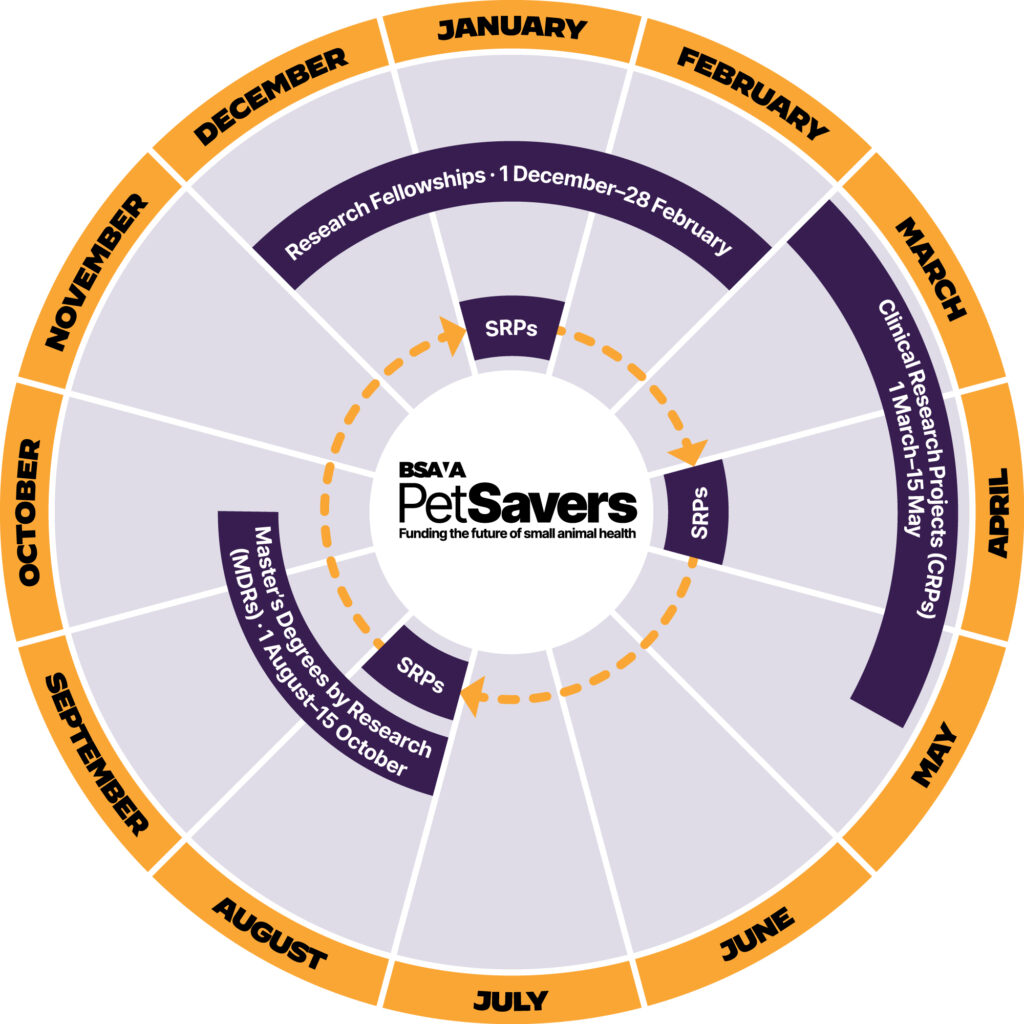Donate
This calendar shows grant calls as purple segments with the open and closing dates included. More information about grant call opening and closing dates can be found in the table below.

Never miss a grant call! Sign up to our mailing list to be notified by email when new grant calls open.
Grant summary table
| Grant | Maximum award | Opening date | Closing date | Decision made | Co-funder | Grant information |
| PhD studentship (partial funding) | £80,000 | CLOSED | CLOSED | CLOSED | Institution which the supervisor belongs to | Partial funding for a postgraduate student to carry out a PhD studentship |
| Master’s degrees by research (MDRs) | £42,000 | CLOSED
Opens again on 1st August 2025 |
CLOSED | March 2026 | Funds a postgraduate student to carry out a research master’s project | |
| Research fellowships | £70,000 | CLOSED
Opens again on 1st December 2025 |
CLOSED | May 2026 | Funds an early-career veterinary researcher to help them establish independence | |
| Clinical research projects (CRPs) | £20,000 | CLOSED
Opens again on 1st March 2026
|
CLOSED | CLOSED | Funds small-scale clinical research projects | |
| Joint-funded clinical research projects | £10,000 | CLOSED
Opens again on 1st March 2026 |
CLOSED | CLOSED | Funds small-scale clinical research projects in specialist areas of companion animal science | |
| Student research projects (SRPs) | £3,200 | OPEN: apply now | 31st January, 30th April, 31st August | Within 6 weeks from the cut-off date | Funds projects for undergraduate vets, vet nurses and bioveterinary science students |
